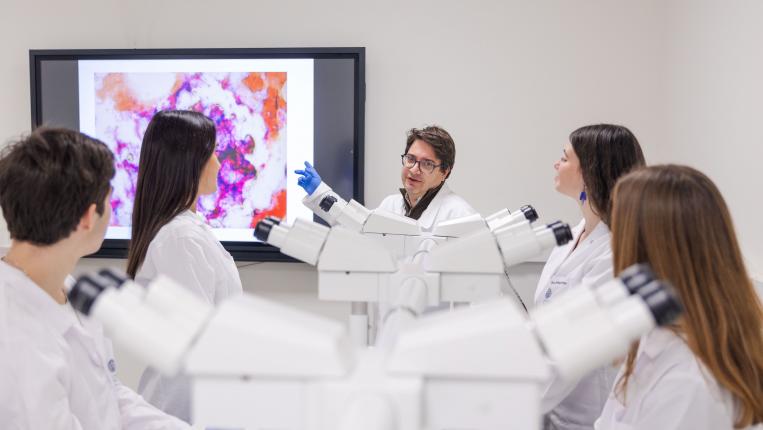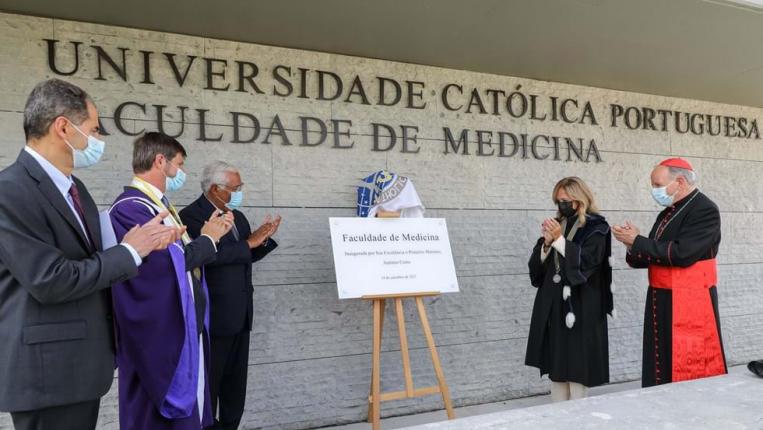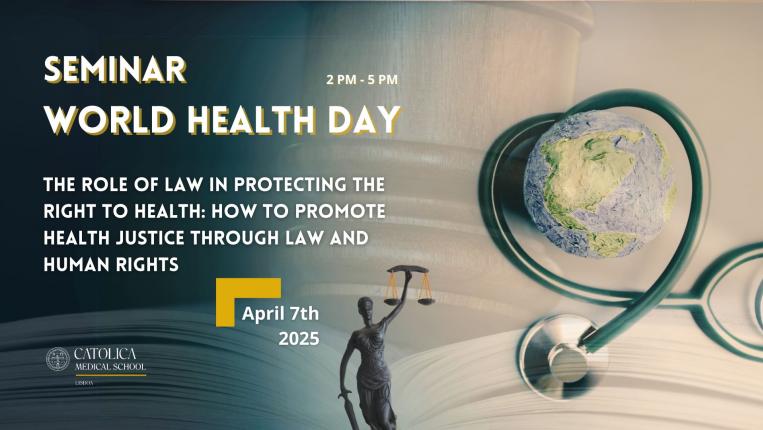"The future of health will not only be defined by the innovations we set out to create; it will also be shaped by how we respond - and anticipate - the challenges and consequences of each major advance". It was with these words that the President of the Universidade Católica Portuguesa, Isabel Capeloa Gil, inaugurated the National Meeting of the Centre for Interdisciplinary Research in Health (CIIS), which was held from 31 March to 1 April at the Católica Medical School.
At this national meeting, which brought together more than a hundred researchers from all CIIS platforms and disciplines, the President noted that "the University has established a series of very demanding quantitative objectives for the production and funding of research", stressing the importance of CIIS "to interim and strengthen innovation, while boosting not only incremental innovation, but also disruptive innovation."
Meanwhile, Paulo Bettencourt, deputy director of CIIS, highlighted the importance of interdisciplinarity, the theme of the meeting, to explain the chosen methodology: "instead of grouping researchers by platform or disciplines, it was decided to create three inclusive working sessions: Translation Care; Clinical Care and Community Care."
An opportunity, according to the chair of the meeting, to "discover the latest scientific achievements of other colleagues, initiate new collaborations and plan major projects for the future, keeping in mind the main goal of improving healthcare with an interdisciplinary vision, to improve the quality of life as much as possible, with humanity and spirituality at the centre of all scientific missions."
"We are walking on the shoulders of a giant and we are fortunate to be in an institution that looks beyond the horizon and always aspires for more," António Medina de Almeida also mentioned in the opening session of the meeting.
The Dean of the Católica Medical School added that the "School is a collaborative project, with the aim of promoting quality and integration of teaching, research and medical care, through close collaboration and optimisation of the resources of its members".
Under the topic "Challenges and Opportunities For Universities in the 21st Century, -Strategy for Health Research", Tomáš Zima, professor at Charles University in Prague, spoke.
The guest speaker mentioned that "universities have to adapt and be competitive and can contribute to solutions, in a dynamic, unstable and unpredictable Era."
"Despite changes, fundamental traditional principles need to be preserved and followed, such as: Freedom of research and educational activity, as well as integrity, autonomy and independence," said Tomáš Zima.
"Universities have an impact on the well-being of society and are the driving force for change towards a better economic, social and environmental situation," he concluded.
The papers, talks and posters presented during this meeting will be published in an international journal, indexed to Scopus.



